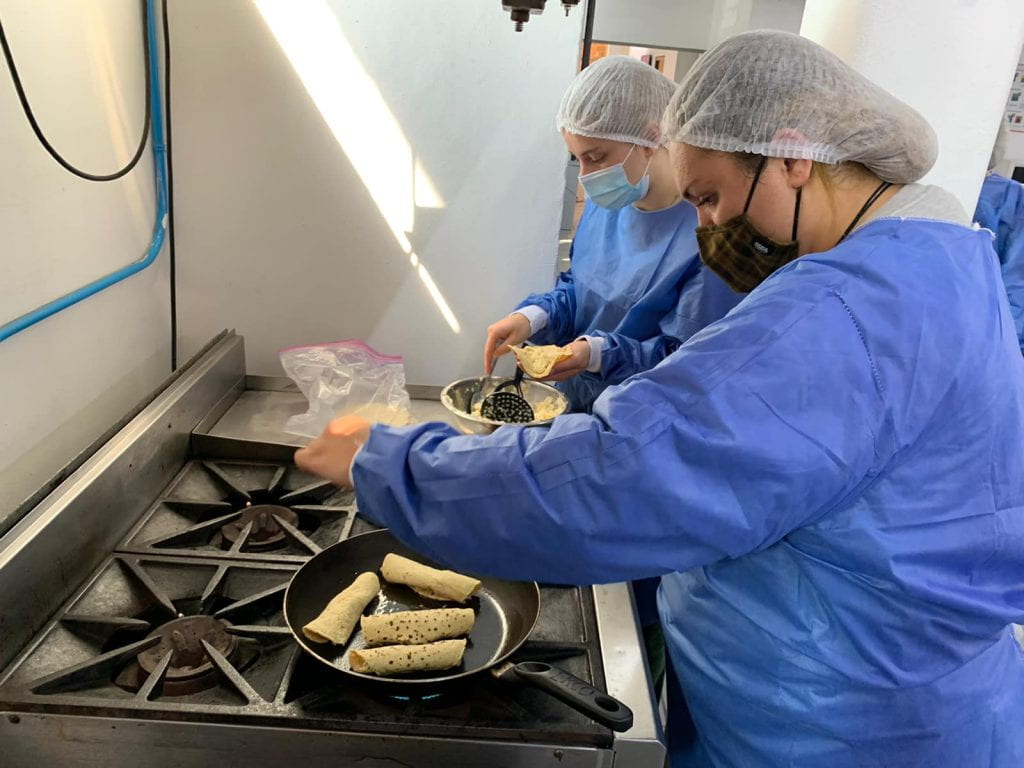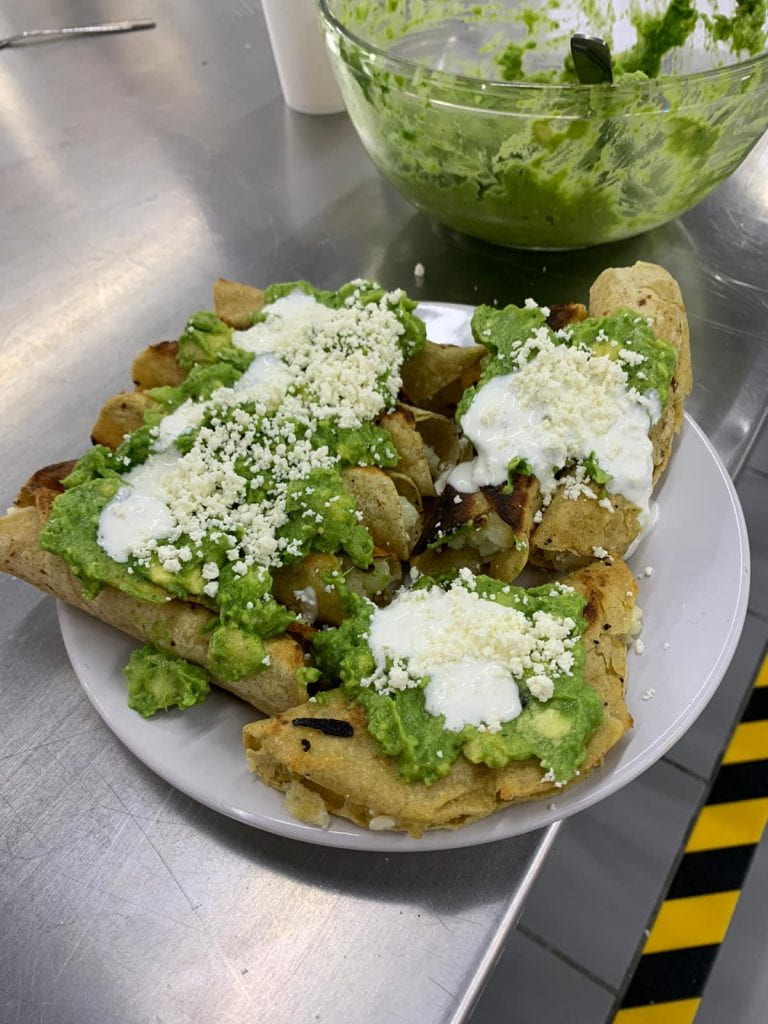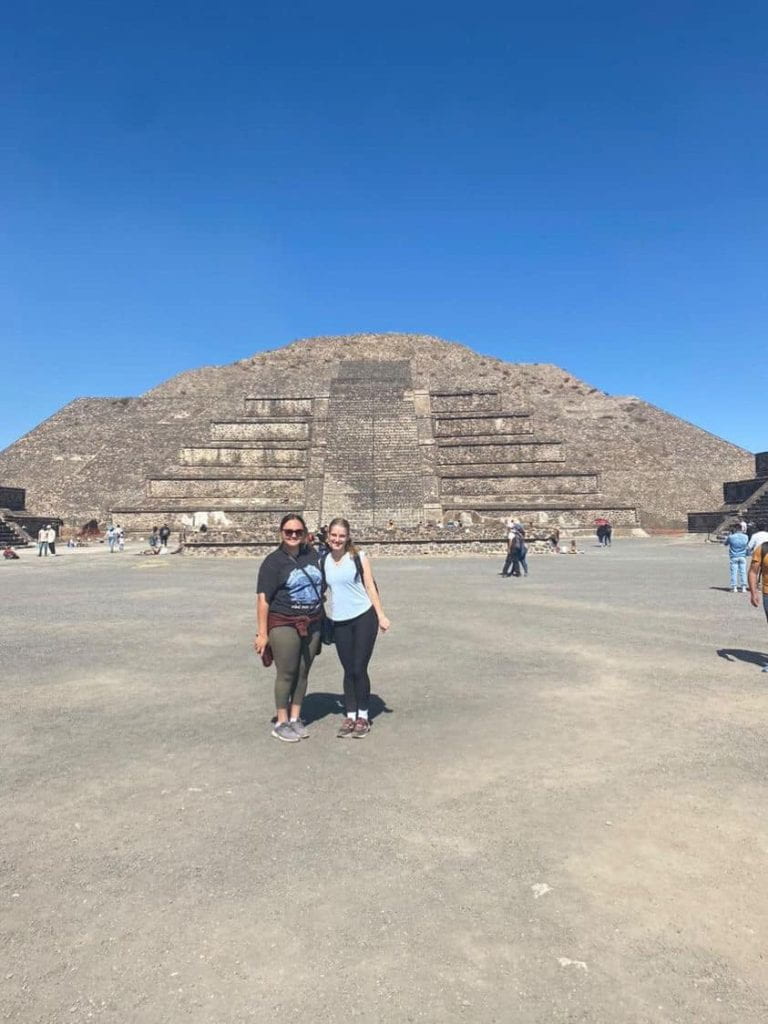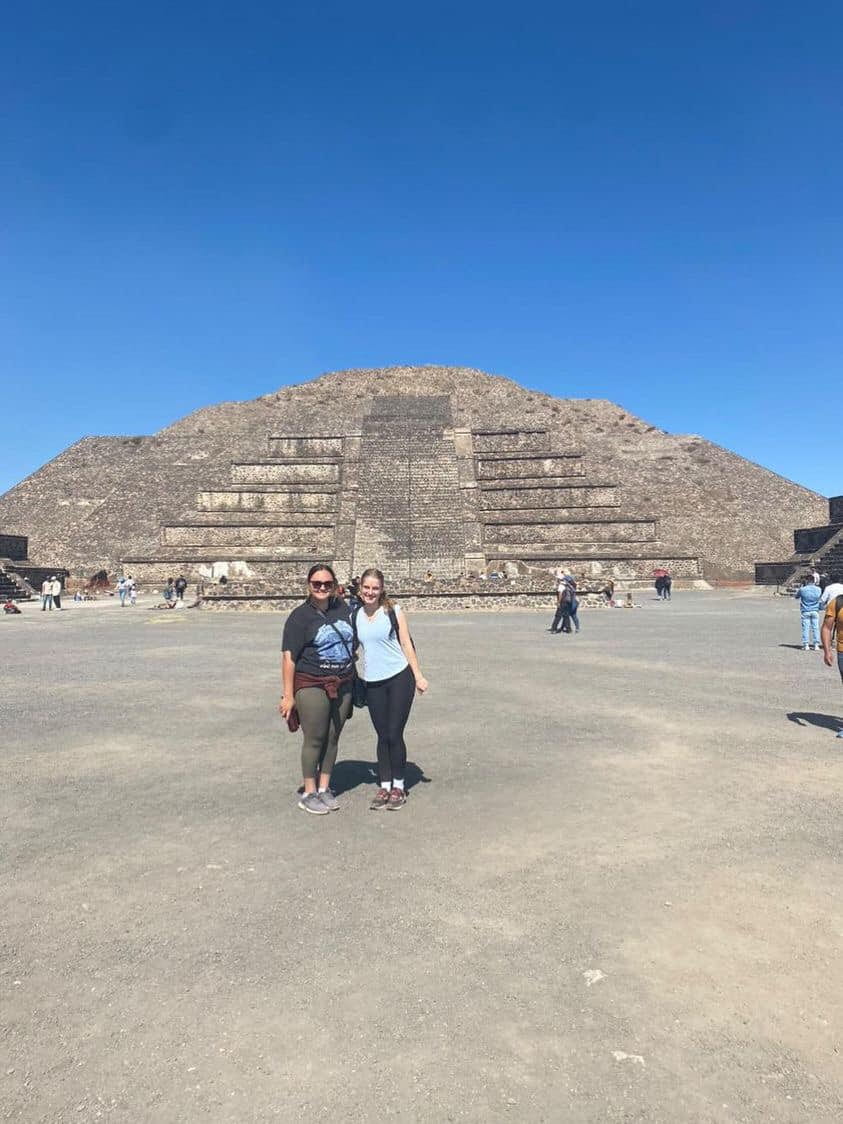Mahia te mahi hei painga mō te iwi.
Kua tae tātou ki te wiki tuatahi o to tātou taenga ki Mehiko. Kua ahua haehae ai ngā ahuatanga o tōku nohonga ki Mehiko, mai i ngā kaupapa ki rō ruma ako, ki runga hoki i ngā kaupapa whakaaro e pā ana ki ōku whainga akoranga.
Ko te mihi tuatahi ki ngā tangata whenua o Mehiko, hoki atu ki ngā kaiako o Ibero, me te matauranga a ngā kaiako, ahakoa te kaha o te mana, ahakoa ngā raruraru ki Mehiko, kua kōrerotia, kua whakaakotia hei āta whakaaro, hei āta kitea ai tātou ngā manuhiri o Mehiko, i ngā tino kinotanga o Mehiko, kia hoki atu ai tātou ki to tātou papa whenua o Aotearoa hei arataki ai i ngā kinotanga, i ngā ahuatanga, hei hua whakaheke mō o mātou tino mahi, a te wāheke.
Ko ngā akoranga o te Pāniora o Mehiko, he tino tino rite ki te Reo Maori. Ngā momo tikanga, ngā momo ture hoki o te Reo Paniora, he rite tonu ki ngā momo ture o te Reo Maori. Hei tauira, ngā momo akonga e pa ana ki ngā ahuatanga, o tātou, mātou, rātou, ia, ahau, koe, taua, raua, maua, he rite tonu ngā ahuatanga ki tera o ngā tauira ki roto i ngā akoranga o te reo Pāniora. Katoa ano hoki, te rongo o ngā reta he rite tonu ki ngā reta o te reo Māori. Na reira he māmā ake mōku ki te pānui i te Pāniora o Mehiko, engari he āhua uaua ki te mau i nga maramatanga o te reo Pāniora.
Whai atu, I whakaritea i te whare wananga o Ibero I tētahi karaehe hei ako mātou i ngā momo tohutaka kai o Mehiko, hei ako ai mātou, hei whakahoki hoki atu i ngā momo tohutaka o Mehiko ki to tātou tai whenua o Aotearoa. AUE, Te reka hoki. Engari ētahi o ngā mea e rereke ana ki ta Aoteroa, e pā ana ki te kai, ko te horoi i te heihei, te tino horoi i ngā huarakau, huawhenua hoki, ki roto i tenei momo horoi tumatarau, na te mea kua parakino a Papatuanuku. Engari ahakoa era, anei ngā momo kai i tunua e mātou;



Mō te wiki katoa, Rāhina tae atu ki te Rāpare, ko tī tātou kaupapa mō te wiki tuatahi e pā ana ki ngā tika o te tangata, anō hoki, e pā ana ki ngā tangata e ngaro ana, i te uruhi. Ia rā, ia wiki, ia marama, o ia tau hoki tata noa atu, kua ngaro haere ētahi tangata o Mehiko, me te kitenga, he aha ngā tika kua whatīa i raro i ngā ture kawanatanga o ēnei tangata. Koinei tētahi o ngā momo raruraru e pūpū ana ki Mehiko nei. Anō hoki, kei whea mai ngā pūrongo e pā ana ki enei raruraru ki Aotearoa, kore rawa, e tika ana me āta aro atu ki o tātou momo raruraru ki Aotearoa, engari hoki, me tiro atu ki ngā purongo o ngā raruraru a ngā wāhi huri noa i te ao hoki, hei kirirarau tātou o te taiao. Hei te Rāmere, i tae atu tōku rōpu ki te mihi atu ki tētahi atu rōpu, ko te kaupapa o to rātou ropu me ki, ki te ata tū hei tangata rongonui mō rātou ma, kua kitea i te whatitanga o o rātou tika hei kirirarau o Mehiko, nā reira ka mihi kau atu kia rātou hoki mō o rātou mahi rongonui.
Hei te Rāhoroi, I tae atu tātou ki ngā Kohatu Keokeo o Teotihuacan, te ataahua hoki, o ngā kohatu, o te hitori hoki o ngā kohatu, he maha hoki, engari ko te kōrero e tino rongonui ana ki ahau, e pa ana ki ngā kōrero o ngā ra o mua. E ai ki nga pūrakau e pa ana ki te mataora o te hāpori e noho tata ana ki nga kōhatu keokeo, hei rautaki, hei whakanui i te mataora, ka tū hei rangatira ai ngā tane mō te 52 tau, whai muri atu, ka tū hoki ngā wahine hei rangatira mō te 52 tau, ara, kua oti te mataora o te iwi, ka whakahokia i te whenua kia Papātuanuku anō.
Kāti ra, ahakoa ngā rangi roa ki te Whare Wananga, kua pangīa mātou ki ngā kaupapa rongonui o te tika o te tangata, anō hoki, kua kitea hoki tātou i tetahi o ngā tohu hītori rongonui. Tenei tētahi o ngā wiki rongonui kia maumahara mō ake tonu atu.
English Translation
This week was our first week in Mexico, and what a hectic first week it has been, from the content based on this week’s topic of Human Rights but also in connection to my general ideologies of Human Rights and what I want to do going further with my degree.
Firstly I would like to thank the Indigenous People in Mexico and the Lectures and Teachers of Ibero for sharing their knowledge of Mexico’s Human Rights and Human Rights with us. Regardless of how technical human rights within Mexico are, they are still willing to share their knowledge with us so that we may carry what we have learnt back to New Zealand so that we can acknowledge and help us understand and correspond with the work we are all hoping that we want to get into.
I had my first Spanish classes in Mexico this week. In some ways, the language relates to Te Reo Maori in terms of like some of the grammar and sounds of Spanish are very much similar to those of Te Reo Maori, so it’s easy for me to read Spanish. Still, it is taking a bit longer to understand, which is a significant integral part of understanding a culture is understanding a language.
Also, the University set up a cooking class for us to learn some of the staple recipes of Mexico and take those recipes back home to New Zealand, and gosh, how delicious. But also, there were culture shocks, such as having to bathe the chicken and wash the vegetables in a unique wash because if not, you may get sick.
For the rest of the week, our first week’s topic was Human Rights from Monday to Thursday. More specifically, one topic was Forced disappearances within Mexico, which is quite a predominant issue within Mexico. However, because I only knew a little about it when I arrived here in Mexico, it’s clear that we should be focusing on our issues within New Zealand and acknowledging and knowing about the problems throughout the world. On Friday, we visited an NGO, Centro Prodh, that works closely on Human Rights issues in Mexico. More specifically, they have been focussing on cases concerning Forced disappearances within Mexico, so I commend everyone within the organisation for their selfless acts.
On Saturday, we visited the Pyramids of Teotihuacan, and the history of the Pyramids is so beautiful. The significance of their historical stories is so beyond a piece of History. For example, in the lifecycles of the Pyramids, where the Men would lead for 52 years, and then women would lead for another 52. Once both leading cycles are over then, the lifecycle of the city is complete. Then they would often collect their things and begin a new life elsewhere as, in some ways, they would return the land to nature and start a new life cycle elsewhere.

Overall, regardless of how long and tiring the days at Uni are, we have learnt some fundamental issues and concepts concerning human rights. We’ve also been able to experience and see one of the most important monuments significant to Mexican history. This week has been a fantastic week and will continue to be remembered.
